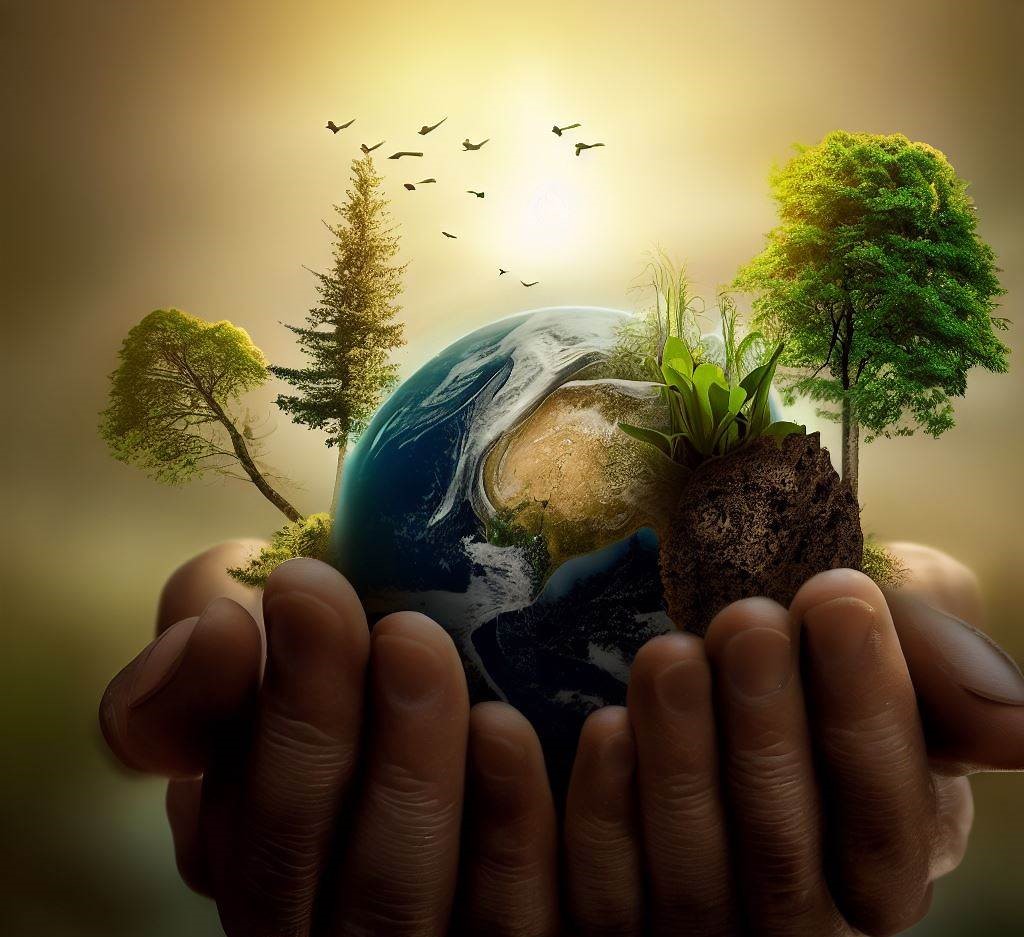The Urgent Need to Address Responsibility for the Miserable Condition of Nature
By Mool Raj
The Earth, our only inhabitable planet, demands our attention and care. Throughout our existence, we have relentlessly exploited nature, clearing forests for infrastructure and hunting animals for sustenance. We have extracted minerals and gems from the depths of the Earth, utilizing its resources without considering the consequences. Now, we face the grave repercussions of nature’s response. We must acknowledge that the Earth’s resources are finite, rapidly diminishing, and endangering our very survival. It is imperative that we protect and save Mother Earth. Taking Care of Our Earth: A Necessity, Not a Choice
Critical State of the Earth: Time for Action
The Earth has reached a critical juncture, demanding immediate action. Human activities have significantly impacted the atmosphere and climate, resulting in altered seasons, delayed monsoons, scorching summers, and melting glaciers. Rising sea levels and the impending extinction of aquatic life are stark realities. Pollution levels are soaring, and air and water quality continue to deteriorate. Global warming and the greenhouse effect, consequences of human actions, now pose a grave threat to human life itself. If we fail to act promptly, it will be too late, and life on Earth will cease to exist.

Collective Efforts for Earth’s Salvation
Saving the Earth requires a collective effort. Individually, one person may not make a significant difference, but together, we can achieve miracles. We must pay attention to small actions in our daily lives, such as conserving energy by turning off lights when not in use, practicing responsible water usage, and minimizing the use of non-biodegradable materials and plastics. Embracing solar and renewable energy sources, like solar heaters and panels, should be prioritized. Private vehicles should be used sparingly, with preference given to public transportation. Educating others about the critical state of the Earth and guiding them in contributing to its preservation is vital. Public campaigns and awareness activities can be organized to increase consciousness. Additionally, planting more trees in our communities and adopting eco-friendly lifestyles will have a significant impact. Teaching our children the value of the planet and fostering sustainable habits will ensure a brighter future. Remember, every small step counts.
Identifying Causes and Seeking Solutions
Various factors contribute to environmental degradation, with population growth and poverty exacerbating the issues. Increased consumption due to population growth coupled with unmet needs leads to poverty and malnutrition. Pollution in its various forms, such as smoke from factories and vehicles, the use of chlorofluorocarbons (CFCs), burning fossil fuels, forest fires, and more, significantly contributes to air pollution. Water bodies are polluted by the discharge of pollutants, bathing of animals, defecation near water sources, and sewage release. Soil pollution arises from excessive farming, tillage, and the use of pesticides and chemicals. Noise pollution stems from loud music, car horns, and industrial machinery. While awareness of these problems exists, efforts to eliminate them are insufficient.
An Urgent Call to Action
To ensure the stability and sustenance of the Earth, adopting a sustainable approach is crucial. The entire ecosystem, including humans and animals, suffers from environmental degradation, leading to imbalances in the food chain. A national environmental policy should be established by governments to safeguard the Earth. Voluntary efforts from individuals to reduce environmental degradation are essential. Protecting the Earth should not remain a daydream but become a reality.
People Mindlessly Follow Trends, Ignoring Environmental Consequences
Amidst the celebration and adherence to trends, the concerning issue of environmental degradation often goes overlooked. There are several factors contributing to this pressing problem, with population growth and poverty at the forefront. As populations expand, so does consumption, leading to a vicious cycle of unmet needs, poverty, and malnutrition. Additionally, pollution in its various forms has a substantial impact on the environment. The smoke emitted from factory chimneys and vehicles, the use of chlorofluorocarbons (CFCs), daily air pollution, burning of fossil fuels, forest fires, and more contribute significantly to air pollution. Water bodies suffer from the discharge of pollutants, animal bathing, defecation near water sources, and sewage release, causing water pollution. Excessive farming, land tillage, and the use of pesticides and chemicals result in soil pollution. Lastly, noise pollution stems from loud music during processions, car horns, and industrial machinery. While awareness of these problems exists, efforts to address and eliminate them remain insufficient.
Urgent Call for Maintaining Earth’s Stability and Sustenance
It is crucial to recognize the urgency of maintaining Earth’s stability to ensure the sustenance of life as we know it. Not only do humans bear the brunt of environmental degradation, but animals also suffer greatly, disrupting the delicate balance of the entire food chain. To save the Earth, it is imperative that governments establish a comprehensive national environmental policy. Furthermore, every individual should volunteer their efforts to reduce environmental degradation and actively engage in preserving the Earth. Protecting our planet should not remain a distant daydream but become a tangible reality.

Our Fundamental Duty to Protect Our Home, Earth
As human beings, we bear a fundamental duty to care for the planet we call home. Earth generously provides us with all the necessary resources for our survival. Regrettably, our insatiable greed has driven us to exploit its resources to an alarming extent, resulting in the scarcity of essential goods for some populations. As responsible residents of this planet, we must take immediate action to reverse the damage inflicted upon it. The Earth has endured relentless exploitation, particularly evident in the indiscriminate cutting of trees, which strips away a vital part of the Earth’s essence with each loss. We must seize the opportunity to plant countless trees during our limited lifetimes, resurrecting the grandeur of the ancient green forests. If each one of us were to plant just one tree annually, the Earth would witness the growth of approximately 7 billion trees in a year.
By acknowledging the consequences of our actions and embracing sustainable practices, we can pave the way for a brighter and more harmonious future for our planet and all its inhabitants. It is our responsibility to protect and preserve the Earth for generations to come.
Leave a Reply